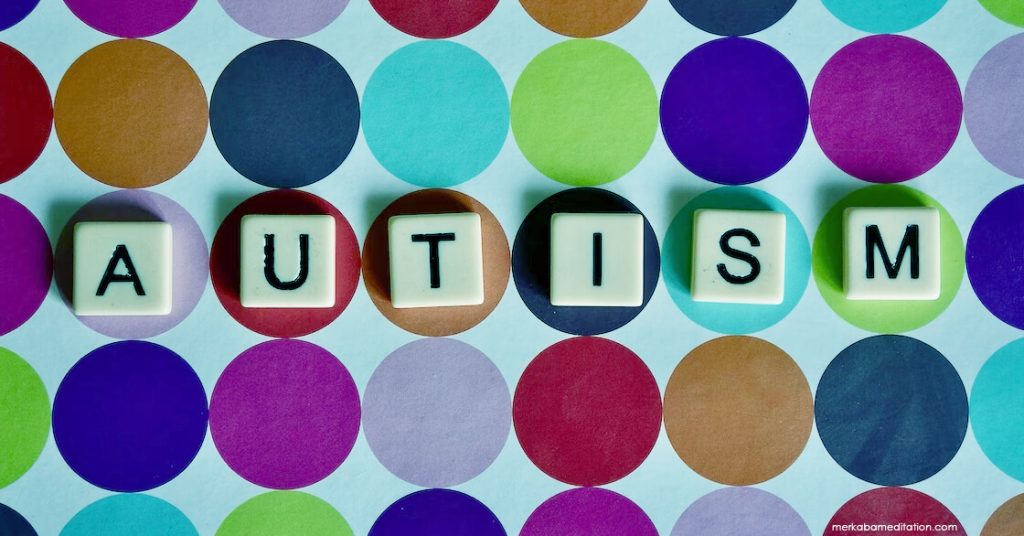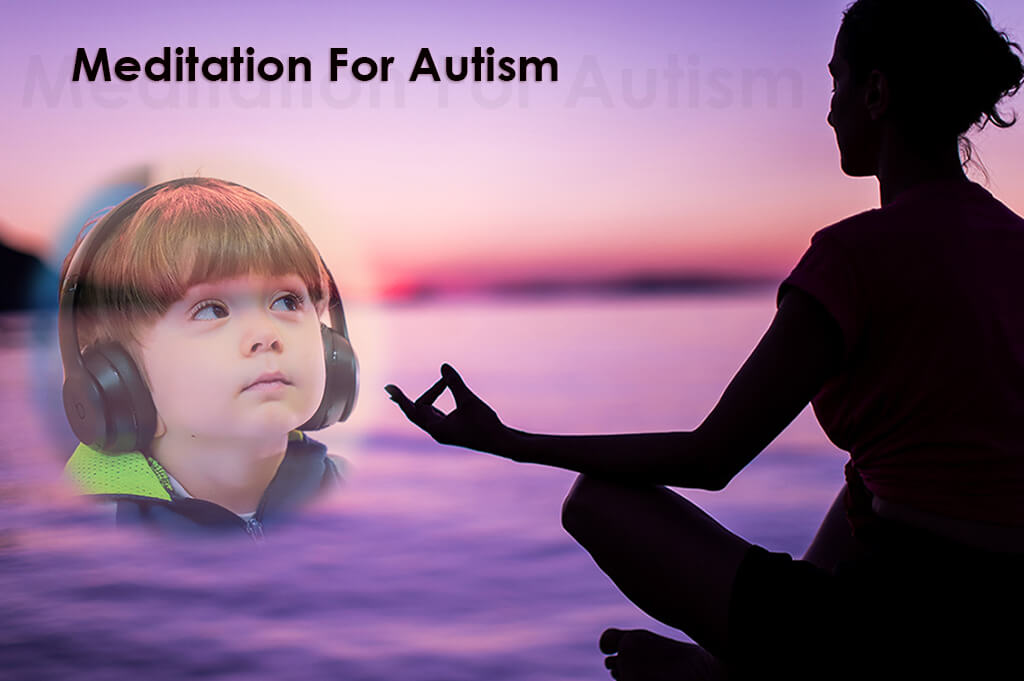As the prevalence of autism continues to rise, researchers and parents alike are searching for effective ways to manage its symptoms. One potential solution that has gained attention in recent years is meditation. But does meditation help autism?
While there is still much research to be done in this area, preliminary studies have shown promising results. Meditation has been found to help with a range of autism symptoms, including anxiety, social communication, and repetitive behaviors. Additionally, it may help improve overall well-being and quality of life for individuals with autism.

What is Meditation?
Meditation is a mental practice that involves focusing one’s attention on a specific object, thought, or activity. It has been practiced for thousands of years in many different cultures and traditions, and its benefits are widely recognized. Meditation is known to reduce stress and anxiety, improve mental clarity and focus, and promote feelings of calm and relaxation. There are many different forms of meditation, including mindfulness meditation, loving-kindness meditation, and body scan meditation.
Meditation and Mindfulness For Autism
Another potential benefit of meditation is its ability to improve social communication skills. Some studies have found that mindfulness meditation can help individuals with autism better understand and interpret social cues, which can lead to improved interactions with others. Additionally, meditation may help reduce the severity of repetitive behaviors, which are a common feature of autism.
Of course, it’s important to note that meditation is not a cure for autism, and results may vary from person to person. However, incorporating meditation into a comprehensive treatment plan may be a valuable tool for managing symptoms and improving overall well-being.
According to the Centers for Disease Control and Prevention (CDC), autism spectrum disorder (ASD) affects an estimated 1 in 44 children in the United States. While there is currently no cure for autism, there are many interventions available to help manage its symptoms. One such intervention that has gained attention in recent years is meditation.

Does Meditation help Autism
Meditation is a mindfulness practice that involves focusing on the present moment and quieting the mind. It has been shown to have numerous physical and mental health benefits, including reducing stress and anxiety, improving sleep, and enhancing cognitive function. But can it also help individuals with autism?
Benefits of meditation for Autism
Research into the potential benefits of meditation for autism is still in its early stages, but there is some evidence to suggest that it may be helpful in managing certain symptoms. For example, a 2015 study published in the Journal of Autism and Developmental Disorders found that a mindfulness-based stress reduction program improved social communication and reduced anxiety in adolescents with ASD. Similarly, a 2018 study published in the journal Autism Research and Treatment found that a yoga and meditation program improved emotional regulation in children with autism.
Another potential benefit of meditation for individuals with autism is that it can improve cognitive function. Many individuals with autism struggle with executive function, which refers to a set of mental processes that are responsible for planning, organizing, and completing tasks. Research has shown that mindfulness practices like meditation can improve executive function, so it is possible that it could help individuals with autism improve in this area as well.
Is meditation for people with autism, a final treatment?
It is important to note that while there is some evidence to suggest that meditation may be helpful for individuals with autism, it is not a cure and should not be used as a replacement for other evidence-based interventions. It is also important to consult with a healthcare professional before starting a meditation practice, as some individuals with autism may find certain types of meditation challenging or overstimulating.
Can Meditation Help Children with Autism?
While there is still much research to be done on the effects of meditation on autism, some studies have suggested that it may have potential benefits. One study published in the journal Research in Developmental Disabilities found that a group of children with autism who participated in a mindfulness-based stress reduction program showed improvements in their social behavior, attention, and anxiety levels.
Another study published in the journal Autism Research and Treatment found that a group of children with autism who participated in a six-week meditation program showed improvements in their emotional regulation, social communication, and adaptive behavior.
It’s important to note that these studies were small and more research is needed to fully understand the potential benefits of meditation for children with autism. However, the preliminary results are promising and suggest that meditation could be an effective complementary therapy for children with autism.

Why Might Meditation Help Children with Autism?
There are several reasons why meditation might be helpful for children with autism. First, meditation is known to reduce stress and anxiety, which are common issues for children with autism. Children with autism may experience high levels of anxiety due to social challenges and sensory sensitivities, and meditation can help them learn to manage these feelings in a healthy way.
Second, meditation can improve focus and attention, which are important skills for children with autism to develop. Children with autism may struggle with attention and focus due to hyperactivity, impulsivity, or other factors, and meditation can help them learn to control their thoughts and focus their attention on a specific task or activity.
Finally, meditation can promote feelings of calm and relaxation, which can help children with autism regulate their emotions and behavior. Children with autism may struggle with emotional regulation, leading to outbursts, meltdowns, and other challenging behaviors. By practicing meditation, children can learn to manage their emotions in a healthy way and reduce the frequency and severity of these behaviors.
Answers to Your Questions (FAQ)
Autism is a developmental disorder that affects communication, social interaction, and behavior. It is a spectrum disorder, which means that individuals with autism can have varying degrees of symptoms and challenges.
Early studies suggest that meditation can be beneficial for individuals with autism. It has been shown to help manage stress and anxiety, improve focus and attention, and regulate emotions and behavior.
No, meditation is not a cure for autism. However, it can be a useful tool for managing some of the symptoms and challenges associated with the disorder.
It’s important for individuals with autism to work with a qualified professional to develop an individualized plan that meets their unique needs. This may involve starting with short meditation sessions, using visual aids or other sensory tools, and incorporating movement or other activities into the practice.
There are a range of therapies and interventions that can be helpful for individuals with autism, including speech therapy, occupational therapy, behavior therapy, and social skills training. It’s important to work with a healthcare professional to develop a comprehensive treatment plan.
Conclusion
In this article, we examined this important question: Does meditation help autism. There is still much research to be done, but early studies on the relationship between meditation and autism show promise. Meditation has the potential to help children with autism manage stress and anxiety, improve focus and attention, and regulate their emotions and behavior.
As with any therapy or intervention, it is important to work with a qualified professional and develop an individualized plan that meets the unique needs of each child. For families looking for an additional tool to support their child with autism, meditation is definitely worth exploring.











8 Comments. Leave new
As someone on the autism spectrum, I can say that meditation has been incredibly helpful for me in managing my anxiety and improving my focus. It may not be a cure for autism, but it definitely has its benefits.
Thank you for sharing your personal experience. It’s great to hear that meditation has been helpful for managing your anxiety and improving focus. It’s important to note that everyone’s experience with autism is unique, and what works for one person may not work for another. However, it’s encouraging to hear that meditation can be a beneficial tool for some individuals on the spectrum.
I have a friend with autism who has been practicing meditation for several years and swears by its benefits for managing sensory overload and improving social skills. It may not work for everyone, but it’s certainly worth exploring as a potential tool for managing the symptoms of autism.
Thank you for sharing your friend’s experience. It’s great to hear that meditation has been helpful in managing their sensory overload and improving social skills. As with any treatment approach, it’s important to individualize and tailor the approach to the specific needs and preferences of the person with autism.
I work with children on the spectrum and have seen firsthand the positive impact meditation can have on their behavior and ability to self-regulate. It’s not a replacement for therapy or other interventions, but it can be a valuable tool in a comprehensive treatment plan.
Thank you for your valuable input. I completely agree that meditation should not be seen as a replacement for therapy or other interventions, but rather as a complementary tool in a comprehensive treatment plan. It’s important to approach autism treatment holistically and consider all available options to best support the individual.
I was skeptical at first, but after incorporating daily meditation into my son’s routine, we’ve noticed significant improvements in his ability to communicate and connect with others. It’s not a one-size-fits-all solution, but it’s worth considering as part of a holistic approach to managing autism.
Thank you for sharing your experience with your son. It’s always inspiring to hear success stories like this. It’s important to remember that what works for one person may not work for another, but incorporating meditation into a routine can be a beneficial addition to a comprehensive treatment plan.